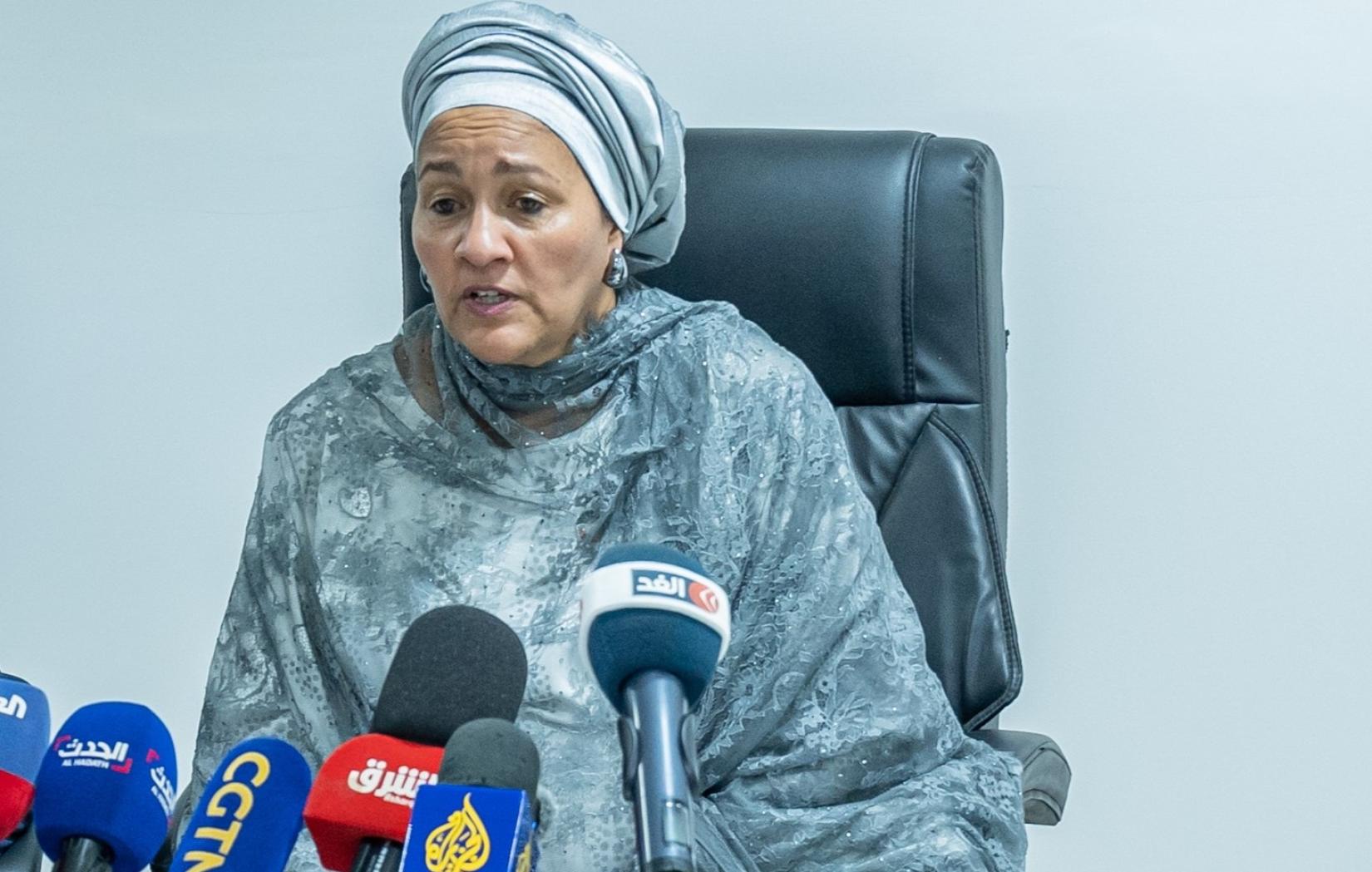Deputy Secretary-General's press encounter at the conclusion of her visit to Sudan
29 August 2024
Press Encounter

Thank you very much, and we very much appreciate the one day that we have had here in the Port of Sudan, where we have met with the Government, and we have met with many stakeholders. The visit has been at the opportunity of the Government opening up the border in Adre. The humanitarian task that we have in Sudan has been very big. It has been one that we have been consistently supporting the Government to try to address the crisis in the country.
The many atrocities that we have seen [inaudible] upon men, women, children, especially, and for that, we wanted to come to speak and to support the Government in keeping that border open and aid to the people that need it most across the country. But in this particular case, this new opening gave us another opportunity.
The second, of course, is to bring the international community again to see the visibility of the crisis here in Sudan. It is a huge one. There are many people suffering. It requires enormous support for commitments that have been made to the humanitarian cause, but have to be fulfilled, and they have to be done urgently.
We have impending crisis around famine. We are not getting medical supplies in where there are health crises. But more importantly, we have to remember the suffering of the people, and we are here to do this with the Government of Sudan.
So that really has been the main reason for coming here. This is not outside of the political processes that are being supported by the United Nations and the Personal Envoy to the Secretary-General, but we would like all of them to happen at the same time, because, of course, the suffering of the people in this country is one of the worst crises in the world today.
Question: Was there any discussion about the negotiations between SAF and RSF?
Deputy Secretary-General: The discussions that we had with the President and with members of his cabinet were principally around the humanitarian agenda and the urgency of this. Of course, there were discussions to say that, agreed, is the Jeddah process, and that is one that must be actioned, and we must try to do that as urgently as possible. There is consensus there, and there is no reason why that cannot be moved forward.
Question: Has there been any progress on agreeing on the procedures for entering Adre?
Deputy Secretary-General: Yes, there has. What we have done is to sit down with the humanitarian aid commission, and then we have had discussions on how, first of all, not to stop any of the aid that is available right now going in. But in parallel, to address legitimate concerns of the government and put in procedures that would ensure this aid gets to people where it's meant to.
Question: Did you receive any commitment from the Sudan Government to open other borders for aid delivery? Because humanitarians are always speaking about others cross borders, with South Sudan, etc.
Deputy Secretary-General: There are many border posts that have already been opened. I believe Adre makes it 11, if I'm not mistaken. That's a number of border openings. What we have to do is to match the openings of these borders with the aid that goes in, and that means resources, and so we need those resources, and we need them now so that we can contend with what we have. As I said, there are many challenges to getting aid to where they are needed. It will be also remiss of me not to say that we have also in consideration, the refugees and the crisis also in Chad. There are many refugees in Chad, and of course, to get through to Adre, you are in Chad. So we're also looking at that. Thank you.

